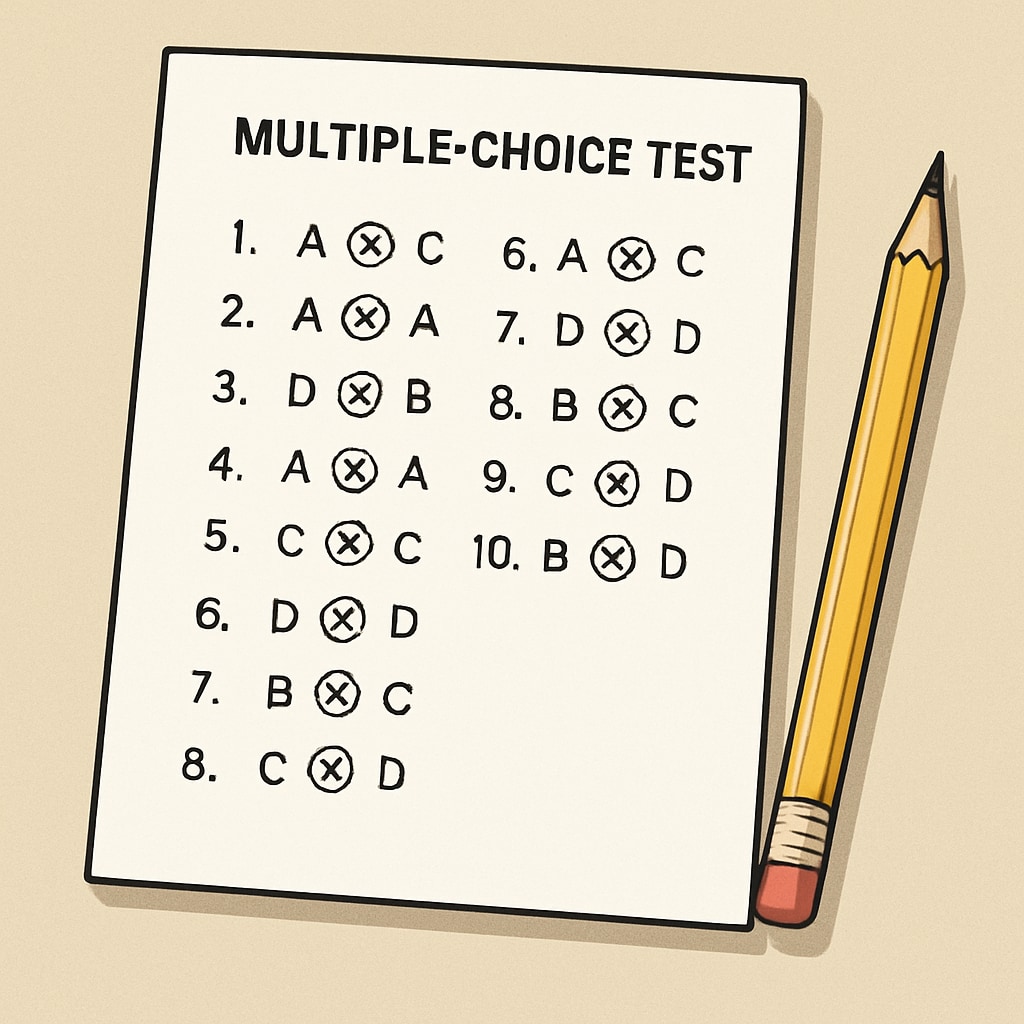Math anxiety, multiple-choice question challenges, and exam pressure often combine to create a significant barrier for students. This phenomenon not only affects academic performance but also diminishes confidence and motivation. Understanding the roots of this issue and implementing effective strategies can help students regain control and excel in their exams.
Understanding Math Anxiety and Its Impact
Math anxiety is a psychological condition characterized by intense feelings of stress or fear when engaging with mathematical tasks. This fear is particularly heightened during exams, especially when faced with multiple-choice questions. These types of questions, while seemingly straightforward, can trigger overthinking and doubt, leading to incorrect answers.
Research has shown that math anxiety impacts working memory, which is essential for solving problems. Studies on math anxiety indicate that individuals with high anxiety levels often struggle to focus, leading to poor decision-making in high-pressure situations like exams.

Why Multiple-Choice Questions Amplify Exam Pressure
Multiple-choice questions (MCQs) are designed to test a wide range of knowledge in a limited time. However, for students with math anxiety, MCQs can feel like a minefield. Here’s why:
- Overthinking: The presence of similar or tricky options can lead to second-guessing.
- Time constraints: The ticking clock can heighten anxiety, making it hard to analyze questions logically.
- Fear of failure: The pressure to choose the “right” answer can overshadow the problem-solving process.
As a result, students may either rush through questions or excessively linger on a single one, both of which negatively impact their overall performance.

Practical Strategies to Overcome Math Anxiety
Overcoming math anxiety and the barriers of MCQs requires a combination of psychological and practical approaches. Here are strategies that can help:
- Preparation and Practice: Familiarity reduces fear. Regular practice with mock tests improves confidence and reduces the unknowns during exams.
- Mindfulness Techniques: Breathing exercises and meditation can help manage stress and focus the mind before and during an exam.
- Breaking Down Questions: Analyze questions in smaller parts to make them less intimidating. This approach promotes clarity and reduces overthinking.
- Elimination Method: Narrow down options by eliminating clearly incorrect answers. This method simplifies decision-making and increases the probability of correct answers.
- Seek Support: Discussing challenges with teachers or counselors can provide new perspectives and solutions tailored to individual needs.
In addition, maintaining a positive mindset is crucial. Remind yourself that a single exam does not define your abilities or future potential.
Building Long-Term Confidence in Mathematics
Conquering math anxiety is not just about performing well in one exam; it’s about building long-term confidence in mathematics. This involves changing the narrative around math as a “difficult” subject and fostering a growth mindset. Celebrate small victories, and acknowledge that mistakes are part of the learning process.
For further reading, explore resources like Britannica’s article on math anxiety, which provides additional insights into the psychological aspects of this condition.
By addressing the psychological and practical barriers of math anxiety, students can transform their approach to exams. With consistent effort, overcoming anxiety becomes a stepping stone to academic success and personal growth.
Readability guidance: Use short paragraphs and bulleted lists to summarize key points. Ensure the flow is logical and easy to follow, with transitions like “however,” “in addition,” and “as a result” used throughout.


